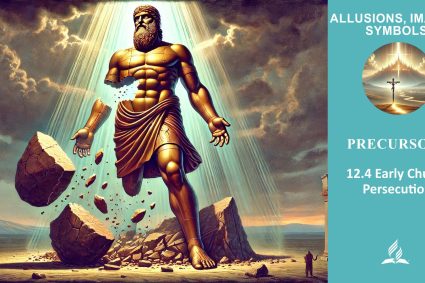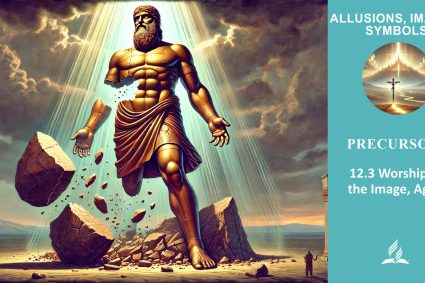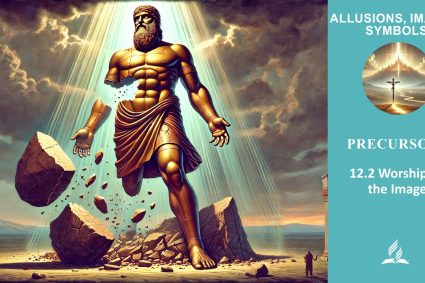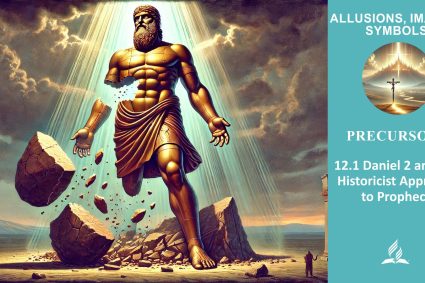

12.3 Mordecai’s Faithful Witness
Read Esther 3:1–15. What happened here and why?
The story of Mordecai in Esther 3 illustrates the strength of his faith in God and how he refused to bow down to a man like Haman, especially since Haman was a descendant of Agag, an Amalekite. The enmity between the Amalekites and the Israelites dates back to the exodus from Egypt (Deuteronomy 25:19).
Mordecai’s steadfastness shows that he was not willing to worship or bow down to a person, even one of royal status. His actions were not just a personal decision but also a demonstrative rejection of an act that contradicted his faith. This stance was based on the firm belief that only God deserves worship and adoration.
When the king’s officials confronted Mordecai, he openly declared that he was a Jew. This was an opportunity for Mordecai to testify to his faith and explain his conviction. Although the Bible does not go into detail about Mordecai’s response, the fact that he revealed his identity as a Jew indicates his readiness to face the consequences for his faith.
Haman’s plan to annihilate the entire Jewish people highlights the danger that can arise from religious intolerance and prejudice. Describing the Jewish people as “dispersed and separated” with their own laws provided Haman with a pretext to persecute them. This underscores the need to advocate for religious freedom and tolerance and to oppose discrimination based on religious differences.
Overall, Mordecai’s story not only reveals his personal steadfastness in faith but also sheds light on the challenges the Jewish people faced in a hostile environment, setting the stage for further events in the story of Esther.
How could we ourselves be similarly tested as Mordecai today? How should we respond?
Today, believers may face challenges similar to Mordecai in various ways. Here are some scenarios and possible challenges:
1.Religious Intolerance: In some regions or contexts, believers may face discrimination or persecution due to their religious beliefs. They may be forced to deny their convictions or bear the consequences.
2.Professional Challenges: In the workplace, believers may encounter situations where they need to defend their religious beliefs and practices, whether regarding working hours, specific rituals, or ethical issues.
3.Social Pressure: In an increasingly secular society, believers may face growing pressure to keep their beliefs silent or conform to secular norms to gain acceptance.
4.Interreligious Tensions: In multi-religious societies, believers may confront tensions or conflicts arising from differences in faith.
How should believers respond in such situations? Here are some principles that might help:
1.Steadfastness in Faith: Similar to Mordecai, it is crucial to remain steadfast in our faith convictions and not yield when tested.
2.Wisdom and Discretion: Applying wisdom and discretion is important to determine the best way to respond in different situations. This doesn’t necessarily mean aggressively defending every belief but acting wisely and respectfully.
3.Advocating for Religious Freedom: Believers can advocate for religious freedom and tolerance, not only for themselves but also for others. Creating understanding and respect between different faiths is essential.
4.Seeking Community and Support: In challenging times, having a community of fellow believers offering support, advice, and prayer can be beneficial.
5.Prayer and Trust in God: Ultimately, believers should turn to prayer and trust that God will guide them through difficult situations. Trusting in God’s guidance and wisdom is crucial.
The exact response may vary depending on the context, but the above principles could serve as a guide to stand firm as believers in challenging situations.
(Visited 51 times, 1 visits today)




















